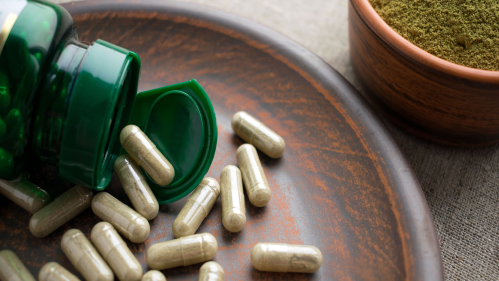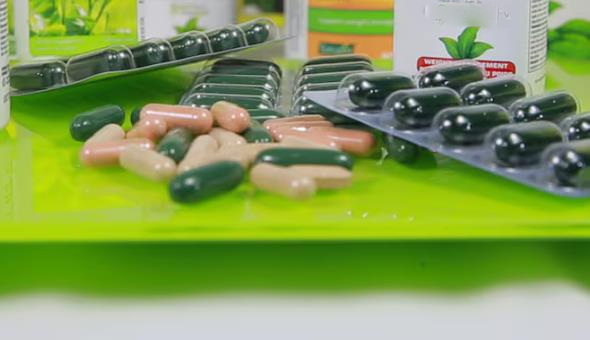Content Menu
● Understanding Green Tea Extract
>> Benefits of Green Tea Extract
● Safety Concerns
>> Liver Health Risks
>> Other Side Effects
● Recommended Dosage
● Who Should Avoid Green Tea Extract?
● How to Choose a Safe Green Tea Extract Supplement
● Conclusion
● FAQ
>> 1. What are the main benefits of green tea extract?
>> 2. Can green tea extract cause liver damage?
>> 3. How much green tea extract should I take daily?
>> 4. Who should avoid taking green tea extract?
>> 5. Are there any side effects associated with green tea extract?
● Citations:
Green tea, derived from the leaves of the *Camellia sinensis* plant, has been consumed for centuries due to its numerous health benefits. In recent years, green tea extract (GTE) supplements have gained popularity for their potential to aid in weight loss, enhance metabolism, and provide antioxidant properties. However, concerns about their safety have emerged, particularly regarding liver health and other side effects. This article explores the safety of green tea extract supplements, their benefits, potential risks, and guidelines for safe consumption.

Understanding Green Tea Extract
Green tea extract is a concentrated form of green tea that contains high levels of catechins, particularly epigallocatechin gallate (EGCG), which is believed to be responsible for many of its health benefits. Unlike regular green tea, which is consumed as a beverage, GTE is available in various forms including capsules, powders, and liquid extracts.
Benefits of Green Tea Extract
- Antioxidant Properties: Green tea extract is rich in antioxidants that combat oxidative stress and reduce inflammation in the body.
- Weight Loss Support: Some studies suggest that GTE can enhance fat oxidation and improve metabolic rate, potentially aiding in weight loss efforts.
- Heart Health: Regular consumption of green tea or its extracts may lower cholesterol levels and improve heart health.
- Blood Sugar Regulation: Green tea extract may help regulate blood sugar levels and improve insulin sensitivity.
- Cognitive Function: The catechins in green tea are thought to support brain health and may reduce the risk of neurodegenerative diseases.
- Skin Health: The anti-inflammatory properties of EGCG may also benefit skin health by reducing acne and signs of aging.
- Cancer Prevention: Some laboratory studies suggest that green tea extracts might inhibit the growth of certain cancer cells, although more research is needed to confirm these effects in humans.
Safety Concerns
While green tea extract offers various health benefits, it is essential to consider the potential risks associated with its use.
Liver Health Risks
Research has indicated that high doses of green tea extract can lead to liver toxicity. A systematic review found that concentrated forms of GTE were linked to cases of liver damage, particularly in individuals consuming high doses or those with certain genetic predispositions. Symptoms of liver damage may include:
- Yellowing of skin or eyes (jaundice)
- Nausea and vomiting
- Abdominal pain
- Fatigue
Health Canada has reported cases linking GTE to liver injury, emphasizing that while moderate consumption is generally safe, high doses pose a risk. They recommend that consumers be cautious and monitor for symptoms of liver distress when using these supplements[3][4].
Other Side Effects
In addition to liver issues, GTE can cause several side effects:
- Gastrointestinal Distress: Common symptoms include nausea, diarrhea, and abdominal discomfort.
- Caffeine Sensitivity: GTE contains caffeine which can lead to anxiety, insomnia, increased heart rate, and elevated blood pressure in sensitive individuals.
- Drug Interactions: GTE can interact with various medications such as anticoagulants and antidepressants, potentially altering their effectiveness. For example, it may increase the effects of drugs like disulfiram (Antabuse) or fluvoxamine (Luvox) due to its caffeine content[1][6].

Recommended Dosage
To minimize risks while still reaping the benefits of green tea extract:
- Moderate Dosage: The recommended dosage typically ranges from 250 mg to 500 mg per day. It is advisable to take GTE with food to reduce gastrointestinal side effects and enhance absorption.
- Avoid High Doses: High doses exceeding 800 mg per day should be avoided unless under medical supervision due to the increased risk of toxicity[2][4].
Who Should Avoid Green Tea Extract?
Certain individuals may need to exercise caution or avoid GTE altogether:
- Those with Liver Conditions: Individuals with pre-existing liver problems should consult a healthcare provider before using GTE.
- Pregnant or Nursing Women: The safety of high doses during pregnancy or breastfeeding has not been established.
- Individuals on Medication: Those taking medications that affect the liver or interact with caffeine should seek medical advice before using GTE.
How to Choose a Safe Green Tea Extract Supplement
When considering a green tea extract supplement, it's crucial to ensure quality and safety:
- Check for Purity: Look for products that have been tested by independent laboratories for purity and content verification. This ensures that what you are consuming is free from harmful contaminants.
- Read Labels Carefully: Ensure that the supplement contains a standardized amount of EGCG. Products should clearly state their catechin content on the label.
- Avoid Proprietary Blends: Supplements labeled as proprietary blends may not disclose exact amounts of individual ingredients. Choose products with transparent labeling.
Conclusion
Green tea extract supplements can offer significant health benefits when used appropriately. However, potential risks such as liver toxicity and gastrointestinal issues necessitate caution. It is crucial for consumers to choose high-quality products from reputable sources and consult healthcare professionals before starting any new supplement regimen. Moderation is key; understanding one's health status and any underlying conditions will help ensure safe consumption.

FAQ
1. What are the main benefits of green tea extract?
Green tea extract is known for its antioxidant properties, potential weight loss support, heart health benefits, blood sugar regulation, and cognitive function enhancement.
2. Can green tea extract cause liver damage?
Yes, high doses of green tea extract have been linked to liver toxicity in some individuals. Symptoms may include jaundice and abdominal pain.
3. How much green tea extract should I take daily?
The recommended dosage ranges from 250 mg to 500 mg per day. It is best taken with food to minimize gastrointestinal side effects.
4. Who should avoid taking green tea extract?
Individuals with liver conditions, pregnant or nursing women, and those on specific medications should consult a healthcare provider before using green tea extract.
5. Are there any side effects associated with green tea extract?
Common side effects include gastrointestinal distress (nausea and diarrhea), caffeine sensitivity (anxiety and insomnia), and potential drug interactions.
Citations:
[1] https://www.webmd.com/vitamins/ai/ingredientmono-960/green-tea
[2] https://www.healthline.com/nutrition/10-benefits-of-green-tea-extract
[3] https://www.canada.ca/en/health-canada/services/drugs-health-products/medeffect-canada/safety-reviews/green-tea-extract-containing-natural-health-products-assessing-potential-risk-liver-injury.html
[4] https://www.canada.ca/en/health-canada/services/food-nutrition/public-involvement-partnerships/notice-modification-list-permitted-supplemental-ingredients-permit-use-green-tea-extract-supplemental-ingredient-foods/document.html
[5] https://www.urmc.rochester.edu/encyclopedia/content?contenttypeid=19&contentid=GreenTeaExtract
[6] https://www.mountsinai.org/health-library/herb/green-tea
[7] https://www.efsa.europa.eu/en/efsajournal/pub/5239
[8] https://www.drugs.com/npp/green-tea.html
[9] https://www.medicalnewstoday.com/articles/269538
[10] https://pubmed.ncbi.nlm.nih.gov/29580974/

 English
English 




























